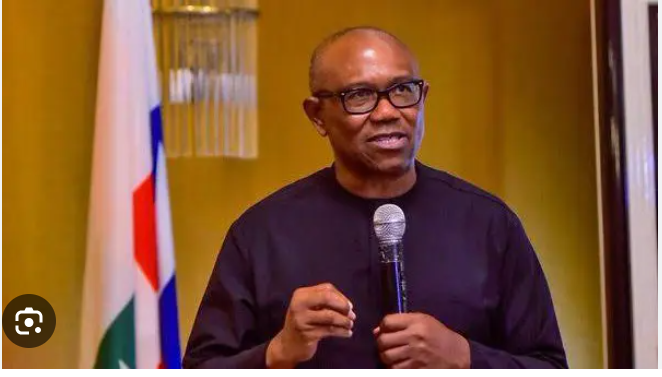Adewole Adebayo, the Social Democratic Party (SDP) presidential candidate in the 2023 Nigerian election, made a surprising claim during a televised interview on Channels Television’s Politics Today. He asserted that Peter Obi, the Labour Party’s presidential candidate in the same election, was poised to join the SDP. This declaration ignited speculation and intrigue within the Nigerian political landscape, particularly given the recent interactions between Obi and other prominent political figures from opposing parties, including former Vice President Atiku Abubakar and former Kaduna State Governor Nasir El-Rufai. These meetings had already fueled rumors about Obi’s potential departure from the Labour Party, despite his repeated public affirmations of his continued membership. Adebayo’s statement added a new layer of complexity to the evolving political dynamics.
Adebayo’s claim was based on information he purportedly received from within the SDP, including the party’s Financial Secretary. While acknowledging that Obi’s move wasn’t officially confirmed until he formally joined the SDP, Adebayo expressed confidence in the information he had received. He framed the potential influx of new members, including Obi, El-Rufai, and even Atiku Abubakar, as a positive development for the SDP, emphasizing the party’s openness and willingness to welcome them. However, he also subtly alluded to the need for these newcomers to adapt to the SDP’s internal culture and adherence to established rules and procedures. This cautious welcome suggested an awareness of potential challenges in integrating high-profile figures with differing political backgrounds and potentially divergent agendas.
The implication of Obi’s potential move to the SDP, if realized, would be significant for the Nigerian political landscape. The Labour Party, under Obi’s leadership, had emerged as a formidable third force in the 2023 elections, attracting a considerable following, particularly among younger voters. Obi’s departure could potentially fracture the Labour Party’s support base and reshape the political alignments leading up to future elections. The SDP, on the other hand, could experience a surge in prominence and potentially become a more significant player in the political arena.
Adebayo portrayed the SDP as a party committed to transparency, fairness, and adherence to democratic principles. He contrasted the SDP’s internal processes, particularly its 2022 convention, with the perceived shortcomings of other parties, highlighting the absence of legal disputes, crises, or allegations of misconduct. He presented the SDP as a viable alternative to both the ruling All Progressives Congress (APC) and the main opposition Peoples Democratic Party (PDP), suggesting that a united and principled SDP could effectively challenge the established political order and offer Nigerians a different path forward. He specifically targeted President Tinubu, expressing confidence in the SDP’s ability to defeat him in future elections and effectively “retire” him from national politics.
The potential realignment of political forces, with figures like Obi, El-Rufai, and Atiku possibly joining the SDP, raises numerous questions about the future trajectory of Nigerian politics. Would such a diverse coalition of political personalities be able to coalesce around a common agenda? How would the existing members of the SDP react to the influx of these high-profile figures? Would the SDP be able to effectively manage the potential internal tensions and maintain its stated commitment to transparency and democratic principles? These are critical questions that remain to be answered.
The political landscape in Nigeria is dynamic and constantly evolving. Adebayo’s assertion about Obi’s potential move to the SDP adds another layer of intrigue to this evolving narrative. Whether this move materializes or not remains to be seen. However, the very possibility underscores the fluidity of political allegiances and the ongoing realignment of forces within the Nigerian political system. The coming months and years will likely witness further shifts and realignments as political actors strategize and position themselves for future elections and the ongoing struggle for power and influence. The Nigerian electorate will ultimately determine the winners and losers in this complex political game.














